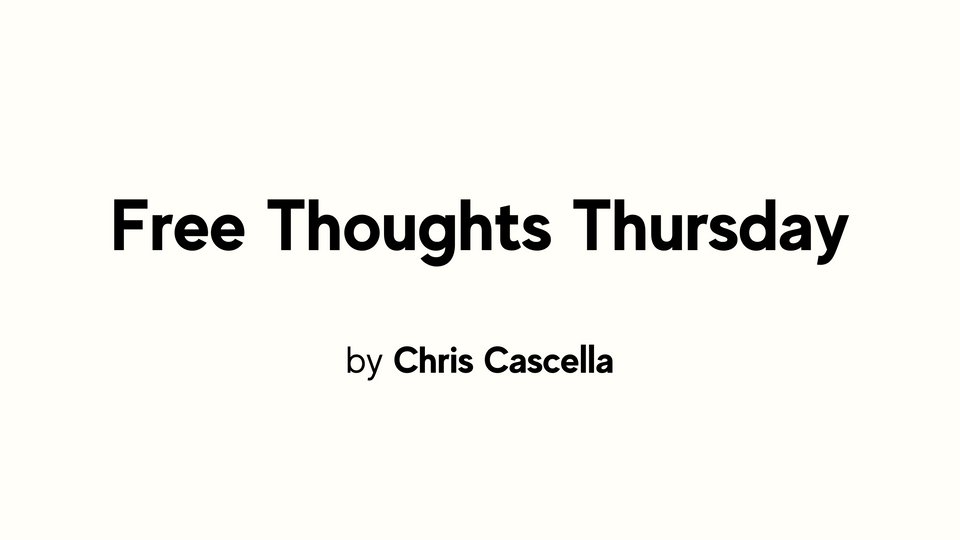FTT: Future You, Motivation & Poverty

Happy Free Thoughts Thursday, people.
Three more days to make the most out of this week.
Yesterday’s Video:
3 Things I’ve Learned:
- We view our future selves as strangers.
The same parts of our brain are active when we think about our future selves as when we think about total strangers.
This helps explain why people under save for retirement, engage in unhealthy diet and exercise habits and make poor personal and/or romantic decisions.
If we're not actually thinking of our future selves as us, then of course we're not going to be able to accurately weigh the consequences of our actions.
Luckily, research shows that we can train our brains to reverse this phenomenon. Write letters to your future self, envision—in detail—what your life will look like in 5, 10 years from now.
Develop a relationship with the person you want to be in the future and ask yourself how what you're doing right now will impact you later on.
(I walk through an exercise called "mind-mapping" in this video which I think may be helpful).
Credit: https://www.ncbi.nlm.nih.gov/pmc/articles/PMC3764505/
2. Monetary rewards undermine intrinsic motivation.
When we're offered money for completing a task, we begin to associate the completion of that task with the reward we receive once it's done.
This is true even if we thoroughly enjoyed the task for its own sake before being offered the reward.
The consequence is that our motivation to complete the task shifts from intrinsic to extrinsic—from what Edward L. Deci calls autonomous to controlled.
Money is great. Being compensated for your work is wonderful.
But this begs the question—how much do you value autonomy?
Credit: Why We Do What We Do by Edward L. Deci; https://pubmed.ncbi.nlm.nih.gov/21078974/
3. 200 years ago, 90% of the world lived in extreme poverty.
Today, less than 10% does.
Here are some other things that have improved substantially over time: life expectancy, literacy rates, number of wars, likelihood to be killed on the job, protection from natural disasters, number of women in the workplace, etc.
We are inundated with negativity in the news and on social media because that's what attracts attention.
But the world is getting better. It might not be great, but it's better than it has been.
If you're looking for a book to read, I recommend Factfulness by Hans Rosling. It goes into much greater detail and will be a breath of fresh air during these crazy times.
Credit: https://singularityhub.com/2018/07/01/new-evidence-that-the-world-really-is-getting-better/
2 Questions for You:
- What’s one thing about current you that younger you would be proud of?
- What’s one "failure" you’ve experienced in your life that has led to something great?
1 Quote:
“In my opinion, the most ordinary things, the most common and familiar, if we could see them in their true light, would turn out to be the grandest miracles.”—Michel de Montaigne
This has not been my most productive week (understatement). I'm working on finding the balance between listening to my body and using the idea of listening to my body as an excuse not to get things done.
I'm also working on forgiving myself when I make a mistake and practicing self-compassion when I don't live up to my own standards. Again, this is a balancing act. Of course I want to live up to my standards... I just don't want to beat myself up when I'm not perfect.
Every day we have the choice to be our own best friend or our own worst enemy.
Seems like an easy choice to me.
Live your life to the fullest,
Chris
P.S. Find this interesting? Please share it with others!
Connect with me on Instagram
Watch my videos on YouTube